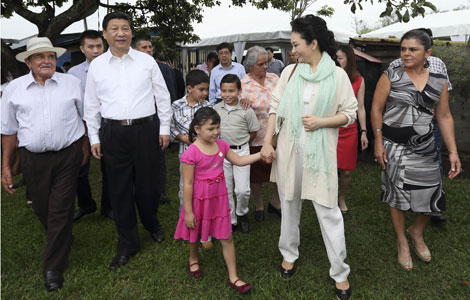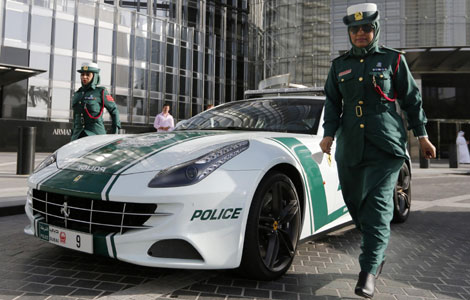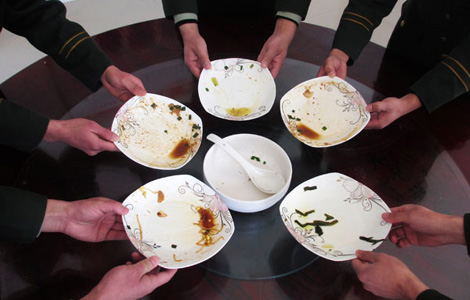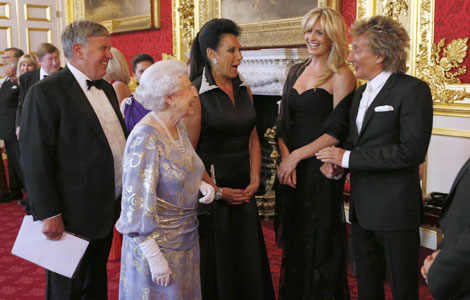Easing peninsula tension
Updated: 2013-04-02 08:25
(China Daily)
|
||||||||
Regretfully, the situation on the Korean Peninsula is heading toward dangerous terrain. The game of tit-for-tat retaliations has raised tensions in a volatile region on China's doorstep. The contested parties should each take a step back and exercise the utmost restraint, as this is the only way to de-escalate the tension.
In its latest show of hostility toward its neighbor to the south, the Democratic People's Republic of Korea said on Saturday that it has entered a "state of war" with the Republic of Korea. Pyongyang's hard-line stance continued on Sunday when it issued a terse warning that nuclear weapons are "the nation's life" and will not be traded even for "billions of dollars".
Pyongyang's latest statement on developing a "self-reliant nuclear industry" is in open defiance to the international community's opposition to its nuclear program. The country should understand it too has a stake in peace and stability on the peninsula. The further it chooses to challenge the international community, the less flexibility it will have to deal with its external environment.
Pyongyang's latest outburst came after the United States sent B-52 strategic heavy bombers and B-2 stealth bombers to the ROK to participate in joint military drills. Harboring a deep-rooted enmity toward the US and the ROK, Pyongyang naturally regards the ongoing war game in the region as a threat and a provocation.
Since the DPRK launched its third nuclear test on Feb 12, the situation on the peninsula has gone from bad to worse. The exchange of aggressive rhetoric and the tit-for-tat retaliation is leading both sides onto a dangerous track.
Though many believe that war is a distant possibility on the peninsula, there is no guarantee that a clash of limited scope may not occur in the foreseeable future. Should such an undesirable scenario become a reality, the outcome may be very difficult to predict or control.
The dire consequences of a head-on clash will be in neither party's interest.
Experience shows us that neither saber rattling nor sanctions have worked as an effective remedy for mitigating the perennial crisis. The provocation-punishment paradigm only sows more seeds of mistrust, misunderstanding and animosity.
The contested parties should show political wisdom and take practical steps to prevent the deteriorating situation from spinning out of control.
Most Viewed
Editor's Picks

|

|

|

|

|

|
Today's Top News
Relationship 'relaunched'
Good start expected for summit
Xi, Mexican president discuss bilateral co-op
Cooperation to drive mutual growth
Chinese president arrives in Mexico for state visit
China is victim of hacking attacks
US to be largest trade partner
China joins fight against hacking
US Weekly

|

|
















